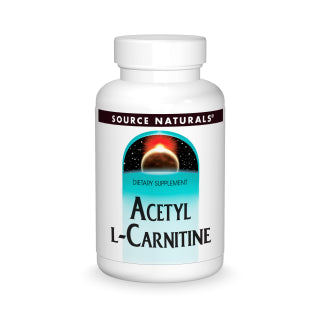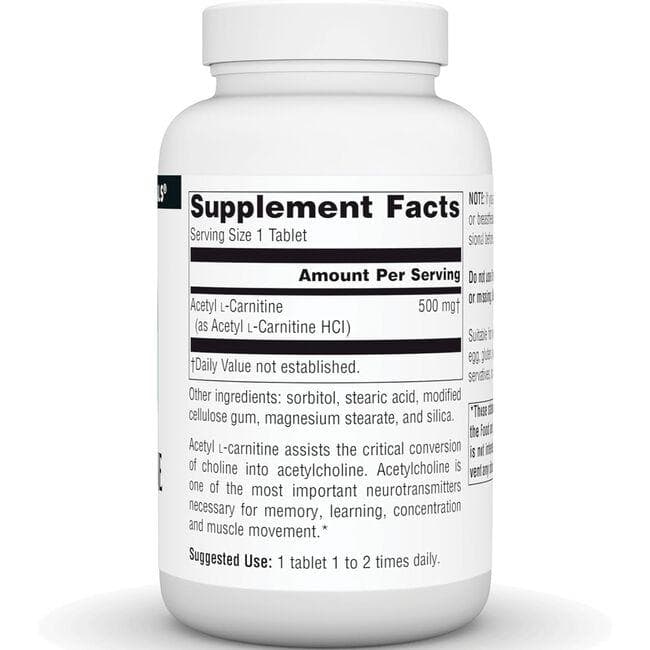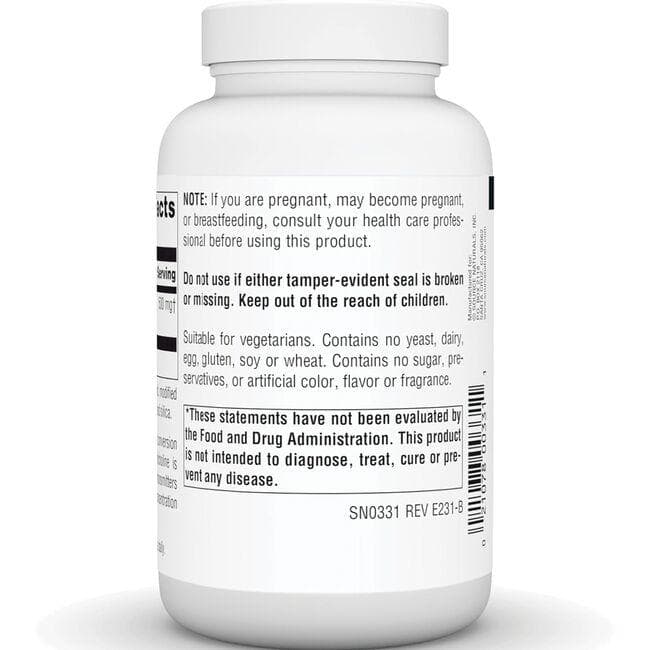
AshwaGum Focus Mint 10pk
Vital Flora Intense Care Brain Mood Probiotic 65B 30cp
Source Naturals Acetyl L-Carnitine 250mg 120tb
+ VAT
Shipping calculated at checkout.
• More readily crosses the blood-brain barrier compared to other forms of carnitine
Acetyl L-carnitine assists the critical conversion of choline into acetylcholine. Acetylcholine is one of the most important neurotransmitters necessary for memory, learning, concentration and muscle movement. Carnitine is also used by our body to transport fats into the mitochondria, where they support energy production.
Suggested Use: 1 to 2 tablets daily
Garden of Life Dr Formulated Multi+ Brain Health 30cp
Irwin Healthy Brain All-Day Focus 60sg













